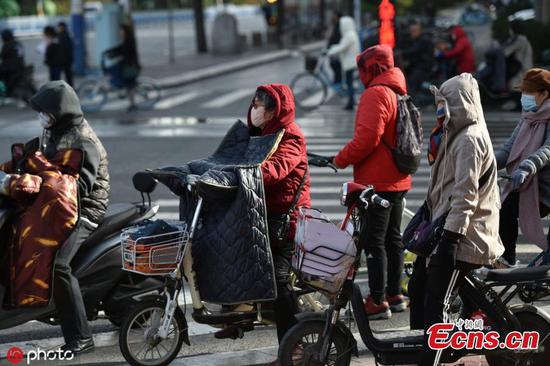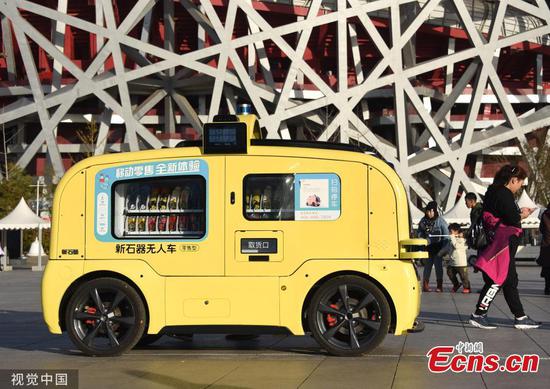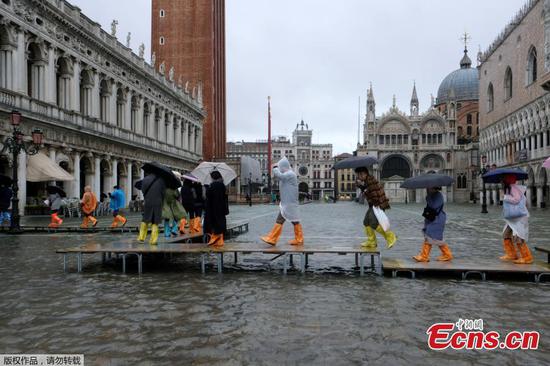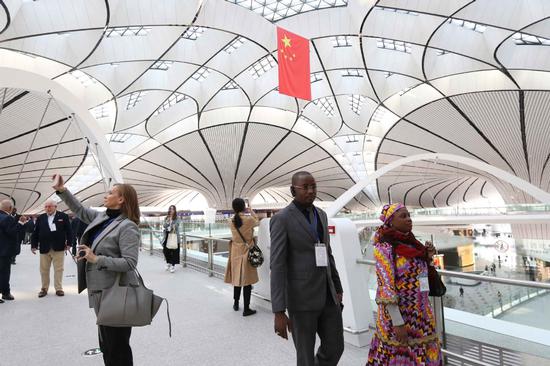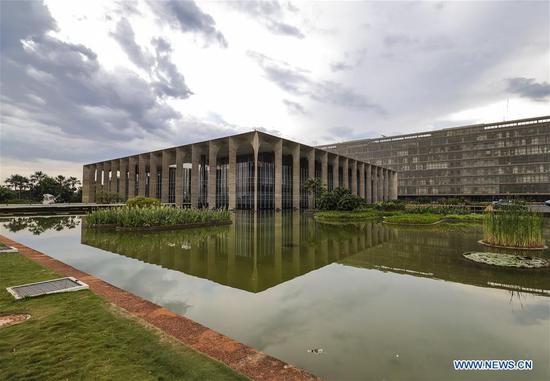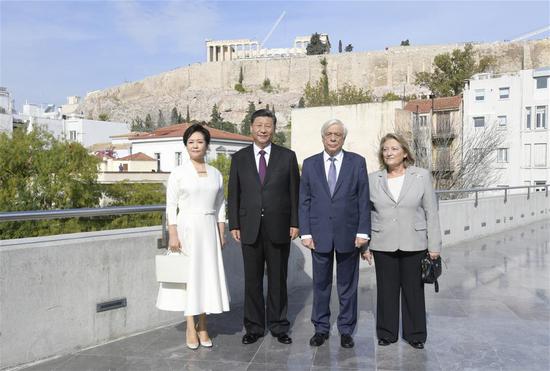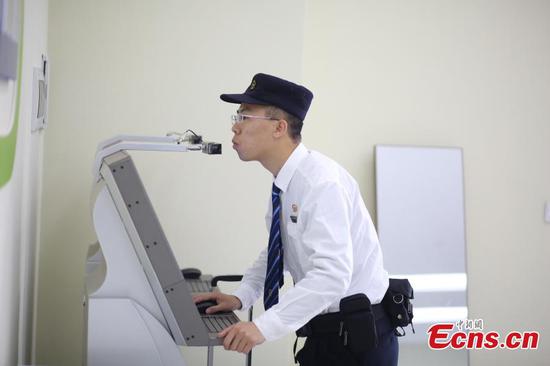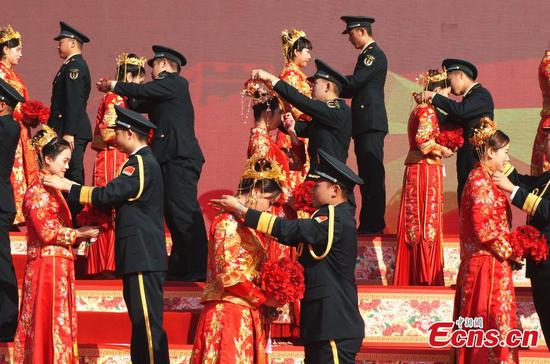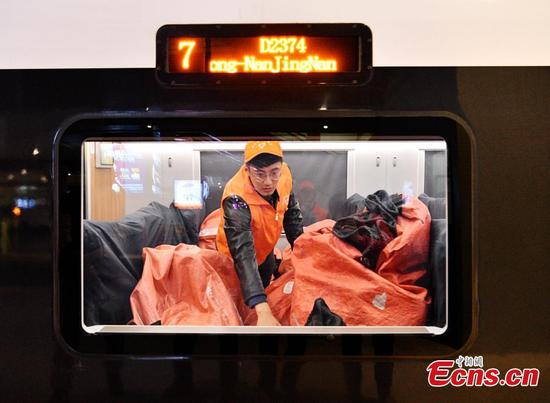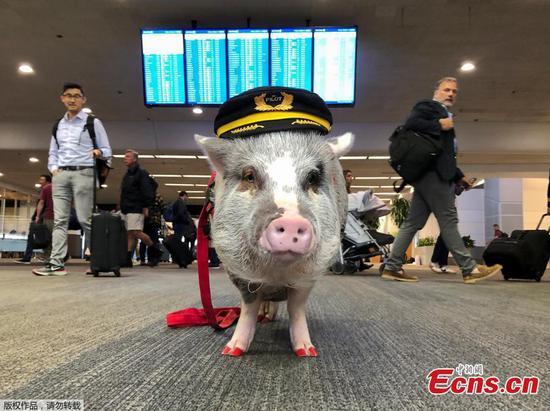
The wreckage of vehicles torched by rioters blocks the entrance of the Chinese University of Hong Kong on Wednesday. (Photo/China Daily)
Tjia said some of her students are also looking for temporary accommodation in Shenzhen so that it will be easy for them to return to Hong Kong once the situation calms down. She said another concern is the fact that a nearby mall was vandalized. The mall is connected to the Kowloon Tong MTR station and most students go through this mall to reach campus.
"My students don't want to be involved. They came to Hong Kong just to study," she said.
Iris Pang, economist for Greater China, ING, said: "The violence level in Hong Kong has escalated and more residents are reluctant to go out for shopping and dining. Some even choose to work from home.
"Tourists are also expected to stay away as they are even more cautious than the residents. This may hint at a worse quarterly GDP in the fourth quarter of 2019 compared to the third quarter."
Pang said that she can still go to work in the bank's office in the Central business district but only because she leaves her home before 7 am and takes a taxi.
"But I may not be able to leave (the office) at 6 pm. I must leave a lot earlier to avoid being stuck in traffic for three hours," she said.
Chandran Nair, founder and CEO of the Global Institute for Tomorrow, said the situation in Hong Kong now is very intense as everyone is pointing fingers at each other and leadership in all sectors is needed.
"The fact that people from the Chinese mainland are leaving is a real shame," said Nair, referring to media reports on how university students from the Chinese mainland decided to leave Hong Kong for safety concerns.
"We must find ways to live with others and respect them," said Nair, noting that people in Hong Kong should wake up to the reality that any violence and sense of resentfulness against others cannot be acceptable.
"The only way to bring the city back to peace is (that) everyone should take a moment to realize how close we are to something very bad happening," he said.
"History is clear. If you disagree with someone, the only way to find a way forward is to shake their hand and talk."
Terence Chong Tai-leung, associate professor at the Chinese University of Hong Kong's Lau Chor Tak Institute of Global Economics and Finance, said it is difficult for faculty staff living on campus to get food and dangerous for students who live in student halls if the situation escalates.
"The students need to know that what they do, including setting up barricades and fires on the roads, may put other people's lives in danger," said Chong. "They also need to know that what they do all have consequences… people should follow the rules."










